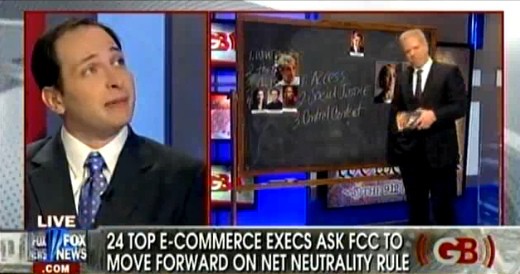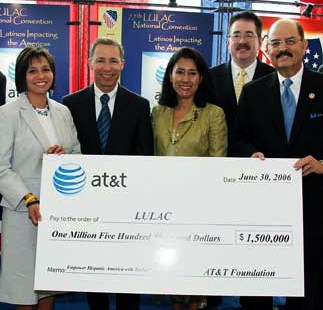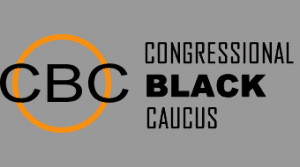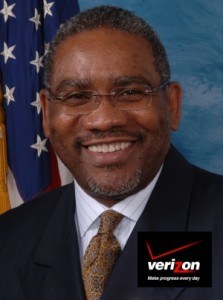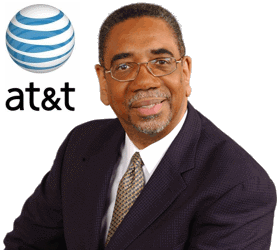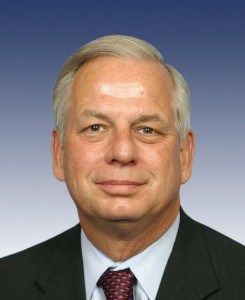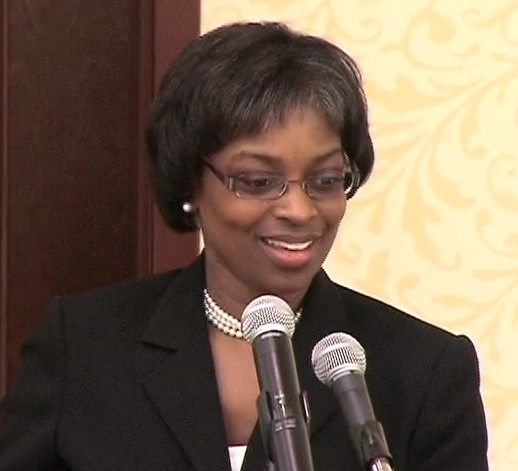
FCC Commissioner Mignon Clyburn
Comcast will pay $110,000 to sponsor a major dinner honoring FCC commissioner Mignon Clyburn at the same time the regulator is considering whether to approve the cable company’s application to acquire Time Warner Cable.
In a barely noticed Senate lobbying disclosure released last month, Time Warner Cable admitted it was also spending $22,000 of its subscribers’ money on the same meal.
The money gets Comcast a top-level commitment as a “presenting sponsor” at the Walter Kaitz Foundation dinner next month, which features Clyburn receiving a “diversity advocate” award. Comcast will be prominently recognized with marquee recognition, get premier seating for 40 of its guests, and inclusion in a variety of ads and “E-News Blasts.”
Some good government groups hope Clyburn can arrange for a last-minute scheduling conflict to avoid the obvious conflict of interest of a cable operator honoring a commissioner who could decide the fate of its multibillion dollar merger deal.
“I think that the timing is curious,” said Carrie Levine, research director at Citizens for Responsibility and Ethics in Washington (CREW), which noted the corporate sponsorships in a blog post Monday. “They’re honoring an FCC commissioner at the exact same time they’re trying to get approval for a merger. And that doesn’t look so good.”
CREW found TWC listed as a “benefactor” on the event’s supporters’ page and the cost of a “benefactor” level table package at the dinner is $22,000. Comcast, meanwhile, is listed on the foundation’s web site as a “presenting sponsor” for the dinner, which costs $110,000.
Comcast is working minority groups hard for letters and votes supporting its merger with Time Warner Cable, notes CREW:
TWC and Comcast’s contributions in honor of Commissioner Clyburn were made at a time when the two companies are aggressively working the levers of power to get their merger approved. As CREW has noted, using honorary contributions to lawmakers and regulators’ favored charities to curry favor is one of the more under the radar moves in Comcast’s merger playbook—a playbook that also emphasizes lobbying, campaign contributions, and winning support from third-party groups, especially those representing minorities.
Regulators must approve the deal, and Congress has been scrutinizing it. Several lawmakers have voiced reservations in hearings about the merger’s potential impact, and this month, more than 50 House members sent Comcast and TWC a letter saying they should commit to carrying independent Latino-focused channels as a condition of the merger. In May, CREW found that between 2011 and 2013, Comcast had spent heavily to honor the Congressional Black Caucus (CBC) and the Congressional Hispanic Caucus (CHC), whose members could be important supporters of the merger. Comcast also gave big to the Asian Pacific American Institute for Congressional Studies (APAICS), honoring, among others, Rep. Judy Chu (D-CA), who is a member of the House Judiciary Committee’s Subcommittee on Intellectual Property and the Internet and supported the Comcast/NBC Universal Merger approval in 2011. TWC made fewer honorary contributions than Comcast during the same period, but also contributed $100,000 in honor of the CHC.
A review of the two companies’ 2014 mid-year lobbying contribution reports reveals money is still flowing to these key groups, and there has been a significant uptick in giving to the CHC. In the first six months of 2014, Comcast contributed $273,454 in honor of the CHC, more than the company contributed in any individual year between 2011 and 2013. Comcast also reported giving $125,000 in honor of the CBC and $50,000 to the APAICS in honor of Rep. Chu and Rep. Mike Honda (D-CA).
TWC increased its giving to other Latino advocacy groups as well. On February 18, 2014, the company contributed $25,000 to the League of United Latin American Citizens (LULAC) in honor of several members of Congress and Secretary of Labor Thomas Perez, an increase from its $20,000 contribution to LULAC in 2013. In addition, on March 5, 2014, Time Warner Cable contributed $25,000 to the National Council of La Raza (NCLR) in honor of the “Gang of Eight” senators who passed a comprehensive immigration reform bill in June 2013. TWC previously contributed a total of $45,000 between 2011 and 2012 to NCLR.
Stop the Cap! will continue to expose the names of elected officials and non-profit and civil rights groups that have thrown their support behind Comcast, which in turn delivers contributions, free exposure, and in some cases future employment with the cable operator.


 Subscribe
Subscribe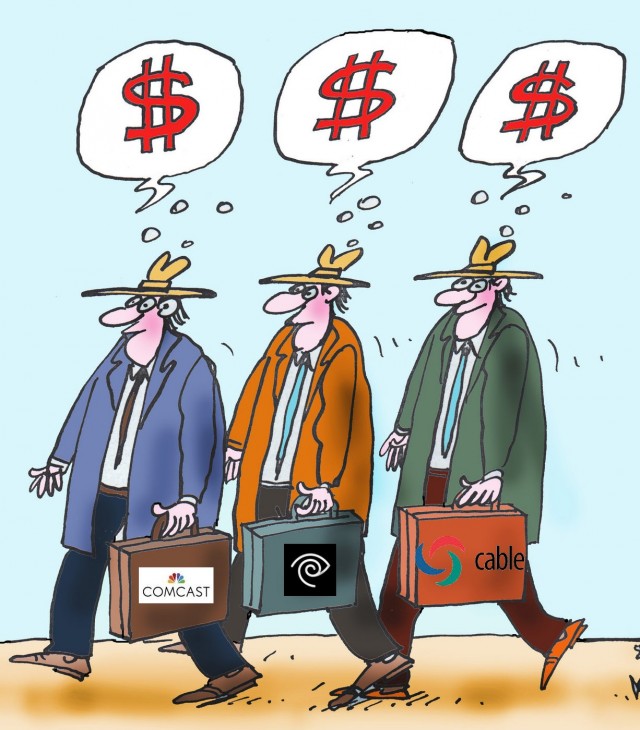 A portion of your cable bill pays for much more than programming, with millions diverted to Koch Brothers-backed astroturf groups, tea party candidates, fat paychecks for former public officials taking a trip through D.C.’s revolving door, and generous allowances for travel expenses racked up by high-flying industry lobbyists.
A portion of your cable bill pays for much more than programming, with millions diverted to Koch Brothers-backed astroturf groups, tea party candidates, fat paychecks for former public officials taking a trip through D.C.’s revolving door, and generous allowances for travel expenses racked up by high-flying industry lobbyists.